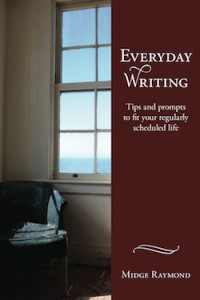Monday Markets for Writers
Monday brings the weekly batch of no-fee competitions/contests, paying submission calls, and jobs for those of us who write (especially those of us who write fiction, poetry, and creative nonfiction).
Monday brings the weekly batch of no-fee competitions/contests, paying submission calls, and jobs for those of us who write (especially those of us who write fiction, poetry, and creative nonfiction).
Monday brings the weekly batch of no-fee competitions/contests, paying submission calls, and jobs for those of us who write (especially those of us who write fiction, poetry, and creative nonfiction).
 The weekly collection of writing-related resources, news, and reflections to read over the weekend.
The weekly collection of writing-related resources, news, and reflections to read over the weekend.
Have a great weekend, everyone. See you back here on Monday for the final post of 2012!
The weekly collection of writing-related resources, news, and reflections to read over the weekend.
Have a great weekend, everyone. See you back here on Monday.
 Last July, I noted some boosts in my writerly productivity. I discerned several factors in that happy development, including
Last July, I noted some boosts in my writerly productivity. I discerned several factors in that happy development, including
the extent to which I’ve been taking to heart [advice] from Midge Raymond’s Everyday Writing: Tips and Prompts to Fit Your Regularly Scheduled Life. As part of her counsel on ways to meet our writing goals, Midge advises: “Don’t dismiss unfinished projects.” She explains: “I’ve found many gems in long-abandoned projects….Never abandon old ideas; you never know when they’ll suddenly be relevant. Revisit all your ‘old’ stories, poems, or essays at least once a year.” (more…)